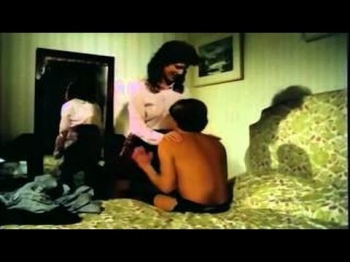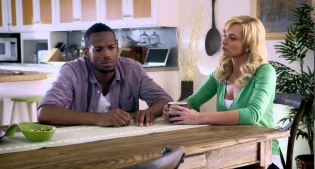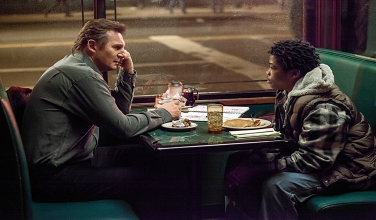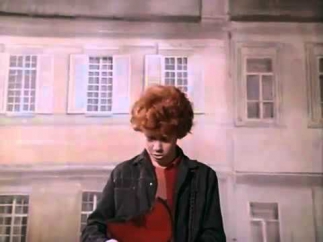The House of Darkness-1913-Lilian Gish, Lionel Barrymore-Drama silent film-Full movie
Эксклюзивное видео на сайте allfamilysongs.ru! "The House of Darkness" is a 1913 American short drama silent film directed by D. W. Griffith, starring Lilian Gish and Lionel Barrymore. In the introduction a woman is shown descending into insanity after having lost her baby. As she mourns, she takes a blanket from the baby's cradle and starts rocking it as if it were her deceased child. This serves as an introduction to what kind of individuals that reside at the mental institution. The doctor at the hospital is also introduced as he proposes to a nurse.The remainder of the film takes place at the aforementioned setting which hosts several unstable individuals. When violence erupts between two patients; one of them played by Charles Hill Mailes escapes the scene in an attempt to avoid capture. At the climax of the chase; the patient is ultimately soothed by the music emitting from a piano in the main hospital building Lillian Gish in a minor role and lets himself be taken away by the guards. As he is removed from the vicinity of the music; he once again becomes violent and escapes the grasp of his attendants. After having come upon a gun he makes his way towards the house of the doctor's wife during this sequence, the perhaps most interesting part of the film seen out of a technical perspective takes place as the lunatic sticks his head out in front of the camera from behind a tree. When the woman discovers him; she becomes terrified. During the farce; the wife puts her hands on the piano by accident, creating a sound which appears pleasing to the lunatic. He urges her to continue, using the gun as a tool of persuasion. She proceeds with the playing which ultimately results in him leaving the house and once again welcomes capture. The film ends informing the viewer on how music becomes an integral part in aiding mentally unstable individuals.At the time this film was made insanity was widely regarded as something fearful, shameful, and possibly even a divine punishment for sinfulness, while people afflicted with mental illness of whatever kind were perhaps to be pitied but certainly removed from the rest of society, locked away in some safe place and shunned. Considering the attitudes of the day D. W. Griffith's short drama THE HOUSE OF DARKNESS is quite progressive in treating the mentally ill as unfortunate victims of their conditions who, in some instances, may respond to therapy and even make full recoveries. The fictional case history presented here may look simplistic to latter-day viewers, especially in its resolution, but taken in context the movie marks an impressive step forward in treating this topic in a sensitive and humane fashion.As with many of Griffith's films of this era, it is the acting which holds things together even more than the technical direction. Griffith knew that the performances had to be convincing for a film like this to work. Charles Hill Mailes was not often a lead player at Biograph he can mostly be seen playing stern fathers, but he is very good here in a role which could easily have been all mugging and arm-waving. Interestingly Claire McDowell whom he menaces here was in reality his wife. They actually played side by side as an elderly couple in a number of pictures in the 30's.Lionel Barrymore - The DoctorClaire McDowell - The Doctor's WifeCharles Hill Mailes - The Lunatic aka The 'Unfortunate' PatientLillian Gish - Nurse Playing PianoDorothy Bernard - unconfirmedAdelaide Bronti - In Tenement ApartmentKate Bruce - A PatientWilliam J. Butler - ExtraChristy Cabanne - Attack Victim as W. Christy CabanneWilliam Elmer - Asylum Guard as Billy ElmerRobert Harron - Asylum GuardAdolph Lestina - A PatientJoseph McDermott - Asylum Guard / SearcherWalter Miller - A ClerkFrank Opperman - A Patient / A ClerkAlfred Paget - Asylum GuardW.C. Robinson - Asylum GuardHenry B. WalthallResources: wikipedia.org, imdb.comNew soundtrack and dubbing: CinematecaMusic: Kevin Mac Leod incompetch.com licensed under Creative Commons licence: Attribution 3.0 Unported CC BY 3.0. - с отличнейшим качеством и звуком!
"The House of Darkness" is a 1913 American short drama silent film directed by D. W. Griffith, starring Lilian Gish and Lionel Barrymore. In the introduction a woman is shown descending into insanity after having lost her baby. As she mourns, she takes a blanket from the baby's cradle and starts rocking it as if it were her deceased child. This serves as an introduction to what kind of individuals that reside at the mental institution. The doctor at the hospital is also introduced as he proposes to a nurse.The remainder of the film takes place at the aforementioned setting which hosts several unstable individuals. When violence erupts between two patients; one of them (played by Charles Hill Mailes) escapes the scene in an attempt to avoid capture. At the climax of the chase; the patient is ultimately soothed by the music emitting from a piano in the main hospital building (Lillian Gish in a minor role) and lets himself be taken away by the guards. As he is removed from the vicinity of the music; he once again becomes violent and escapes the grasp of his attendants. After having come upon a gun he makes his way towards the house of the doctor's wife (during this sequence, the perhaps most interesting part of the film seen out of a technical perspective takes place as the lunatic sticks his head out in front of the camera from behind a tree). When the woman discovers him; she becomes terrified. During the farce; the wife puts her hands on the piano by accident, creating a sound which appears pleasing to the lunatic. He urges her to continue, using the gun as a tool of persuasion. She proceeds with the playing which ultimately results in him leaving the house and once again welcomes capture. The film ends informing the viewer on how music becomes an integral part in aiding mentally unstable individuals.At the time this film was made insanity was widely regarded as something fearful, shameful, and possibly even a divine punishment for sinfulness, while people afflicted with mental illness (of whatever kind) were perhaps to be pitied but certainly removed from the rest of society, locked away in some safe place and shunned. Considering the attitudes of the day D. W. Griffith's short drama THE HOUSE OF DARKNESS is quite progressive in treating the mentally ill as unfortunate victims of their conditions who, in some instances, may respond to therapy and even make full recoveries. The fictional case history presented here may look simplistic to latter-day viewers, especially in its resolution, but taken in context the movie marks an impressive step forward in treating this topic in a sensitive and humane fashion.As with many of Griffith's films of this era, it is the acting which holds things together even more than the technical direction. Griffith knew that the performances had to be convincing for a film like this to work. Charles Hill Mailes was not often a lead player at Biograph (he can mostly be seen playing stern fathers), but he is very good here in a role which could easily have been all mugging and arm-waving. Interestingly Claire McDowell whom he menaces here was in reality his wife. They actually played side by side as an elderly couple in a number of pictures in the 30's.Lionel Barrymore - The DoctorClaire McDowell - The Doctor's WifeCharles Hill Mailes - The Lunatic aka The 'Unfortunate' PatientLillian Gish - Nurse Playing PianoDorothy Bernard - (unconfirmed)Adelaide Bronti - In Tenement ApartmentKate Bruce - A PatientWilliam J. Butler - ExtraChristy Cabanne - Attack Victim (as W. Christy Cabanne)William Elmer - Asylum Guard (as Billy Elmer)Robert Harron - Asylum GuardAdolph Lestina - A PatientJoseph McDermott - Asylum Guard / SearcherWalter Miller - A ClerkFrank Opperman - A Patient / A ClerkAlfred Paget - Asylum GuardW.C. Robinson - Asylum GuardHenry B. WalthallResources: wikipedia.org, imdb.comNew soundtrack and dubbing: CinematecaMusic: Kevin Mac Leod (incompetch.com) licensed under Creative Commons licence: Attribution 3.0 Unported (CC BY 3.0).














